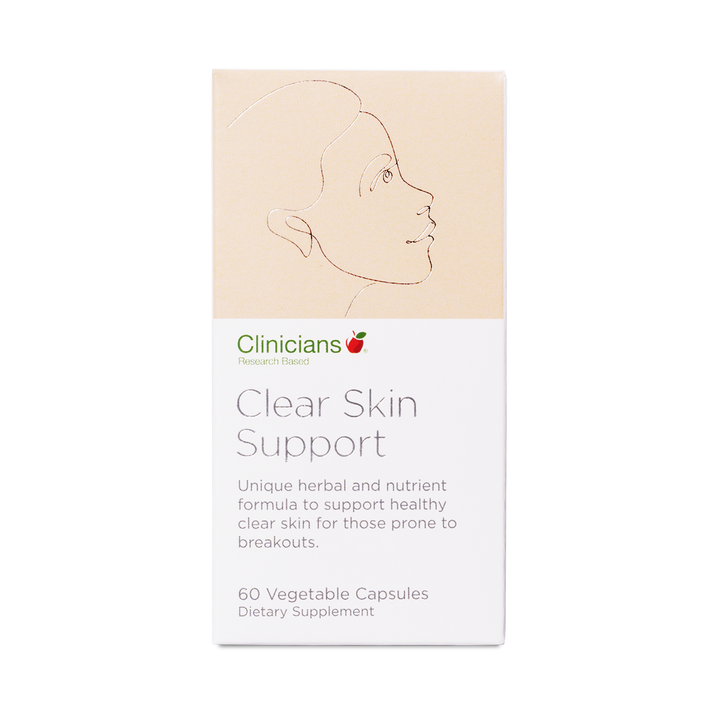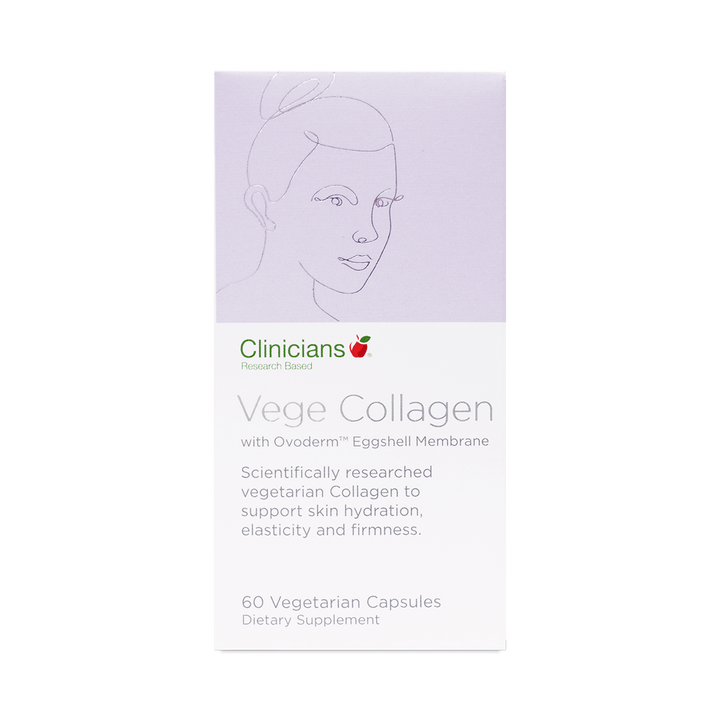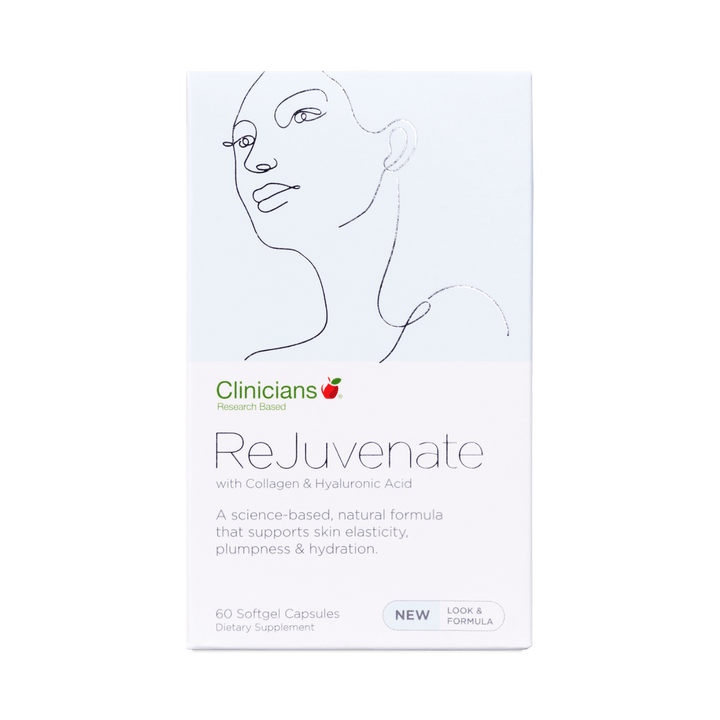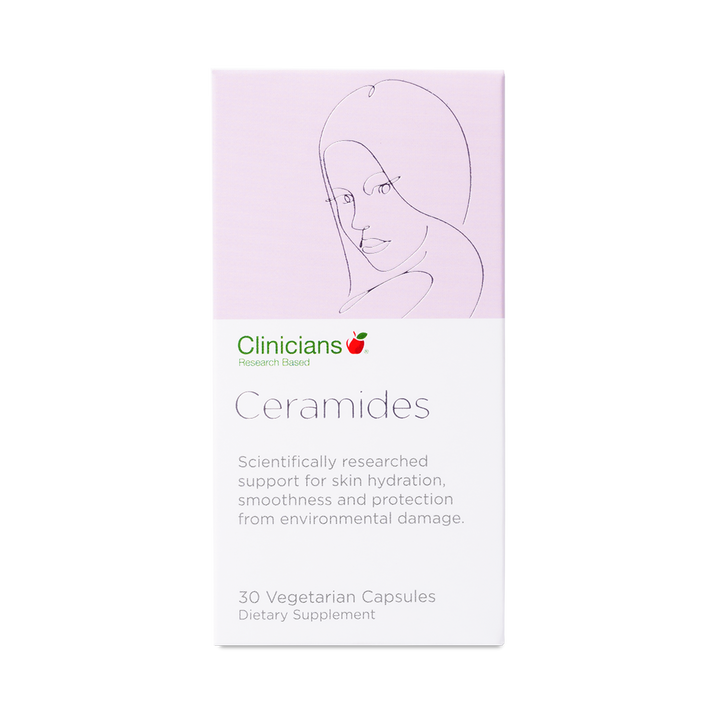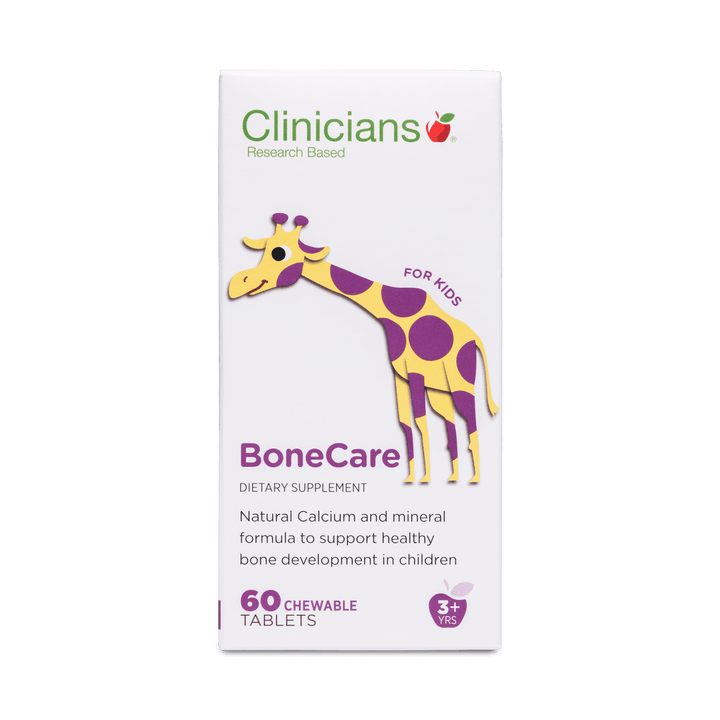Did you know that one of the best ways to maintain healthy, radiant skin is through your daily diet?
There are some essential nutrients that your skin needs to remain hydrated and healthy, so what you eat and drink is very important.
Here are a few of our top diet recommendations for healthy skin:
Essential Fatty Acids (EFA)
There are two main layers to the skin: the epidermis and dermis. Essential Fatty Acids (EFA's), particularly Omegas 3 and 6, provide nutritional support for the epidermis, resulting in healthy ageing and smooth skin.
The different forms of fatty acids within Omega 3 and 6 influence the structural integrity and barrier function of the skin, supporting moisture and elasticity, while reducing flaky, dehydrated skin.
Make sure you get your daily dose of EFAs:
- Grab a handful of walnuts and cashews
- Sprinkle a range of seeds such as LSA (Linseed, Sunflower seeds and Almond) on your breakfast or in a smoothie
- Eat oily fish like salmon or mackerel at least 2 times a week
- Try drizzling unrefined hemp or olive oil on your salad or steamed greens each day
Antioxidants: Vitamin E, C, A and Selenium
Antioxidants can counteract or neutralise free radicals, which are unstable atoms that can damage delicate cells in the skin. A diet high in antioxidants can protect the delicate cells of our skin and slow the ageing process.
Luckily, they're found in many fruits and vegetables in the form of Vitamin E, C, A and Selenium.
Avocado
Avocado is a great source of Vitamin E which is an essential antioxidant that helps protect your skin from exposure to toxins. Avocado also has the added benefit of containing the healthy essential fatty acid called alpha-linolenic acid.
Vitamin C
We all know how beneficial Vitamin C is in our diet for immune support, but its high antioxidant properties also makes it a vital nutrient for skin health. Our skin contains Vitamin C, which plays a major role in the production of collagen. Collagen is one of the building blocks of skin, providing strength and elasticity.
Foods such as strawberries, broccoli, blackcurrants and citrus fruits are a great source of natural Vitamin C.
Vitamin A
Vitamin A is yet another antioxidant and can protect the skin from sun damage. You can incorporate sweet potatoes, carrots and green leafy veggies like kale, watercress and spinach to get your daily dose of Vitamin A.
Selenium
Selenium is also an essential nutrient that helps antioxidants provide protection from UV damage. So grab a couple of brazil nuts every day to ward off those wrinkles.
Unfortunately, there are not really any other foods that have such a high content of selenium! If you can't eat brazil nuts, find a good selenium supplement to ensure you get therapeutic levels.
Water
The skin contains approximately 65% of water, so it's vital for skin health to make sure you drink enough water each day. The less we drink the less supple and clear our skin can become. We recommend at least 1.5 to 2 litres a day. This amount can include herbal tea, which is much easier to drink in the colder months, instead of cold water.
If you find it hard to drink the recommended daily amount of water, eating fruits and vegetables with a high water content can also keep you hydrated. You’ll also get the additional vitamins and minerals that keep your skin healthy too!
Here’s a list of veges and fruit that contain more than 90% in water:
- Celery
- Cucumber
- Iceberg lettuce
- Tomato
- Zucchini
- Watermelon
- Rockmelon
- Grapefruit
- Strawberries
Make sure you include raw fruit and vegetables in your meals and snacks each day. Cooking vegetables can reduce the water content, so raw is definitely the best way to get water out of your food. Also choose fresh fruit over canned, as they are usually combined with sugar and other not so beneficial additives.
Foods to help reduce oily skin
Oily skin develops from our sebaceous glands making too much sebum. Sebum is an oily, waxy substance that helps your skin retain moisture and keeps it protected. When our skin starts making too much sebum, it leaves a greasy, oily layer and can clog pores and lead to acne.
Don't worry. If you have particularly oily skin, we’ve got some tips to help. Not only do all of the following foods support reduced oil content in your skin, but they also contain essential nutrients which will also keep your skin looking healthy and clear.
- Lentils or pulses: Have the ability to maintain the balance of oil in our body
- Cucumber: Soothes the skin and reduces toxins and oil accumulation as well as the benefits of a high water content
- Avocado: Prevents secretion of excess oils from sebaceous glands (small oil-producing glands present in the skin)
- Spinach, kale and broccoli: Rich in fibre which helps to clear your skin and regulate oil production
- Oats: Balances blood sugar levels, reducing the production of sebum oil.
- Coconut water: Rehydrates skin and maintains oil balance
- Grapefruit: Naturally astringent (drying and cleansing), so can help absorb excess oil. Grapefruit also has the benefits of a high water content
- Banana: Reduces bacteria in the skin and regulates sebum oil production
Foods that increase oil in your skin:
- High Glycemic Index (GI) foods: These are foods that are high in processed carbohydrates such as white sugar, fizzy drink, cakes and biscuits, white bread, pasta and rice, potatoes and chips and sweetened dairy products
- Unsaturated fats: Such as pies, microwave popcorn, pizza, all fried foods, processed meats, dairy foods
Tip: Zinc is excellent for supporting skin repair and can reduce those annoying breakouts. Try eating foods high in zinc such as oysters or hemp seeds.
When will I see changes in my skin?
How long it might take to start seeing changes in your skin is different for everyone. So it's difficult to say how long it may take. You may notice positive changes in your skin within a week or two. Especially if you really commit to a healthy diet to reduce oil production in your skin.
But there are a range of things that can influence the length of time it takes to see changes.
These include:
- Whether you are taking medications
- Your age
- Hormonal health
- Lifestyle (particularly if you are exposed to high volumes of sun)
- Stress levels
- Sleep hygiene (our body needs 8 hours of restful sleep each night)
- A pre-existing health condition
Selenium Oral Drops

Clinicians Selenium Oral Drops are a well-absorbed form of selenium in easy to take liquid drops, for antioxidant support and healthy immunity.
Vegan Omega-3 Algae Oil
Clinician's high quality vegan Omega-3 oil is sustainably sourced from algae, and supports skin health, focus and memory.
Tell us what worked for you
Try the healthy skin tips in this article and let us know what worked for you. Or, if you've got a tip that isn't listed in this article – share it with us. You can contact the Clinicians team on Facebook, Instagram or email: info@clinicians.co.nz




